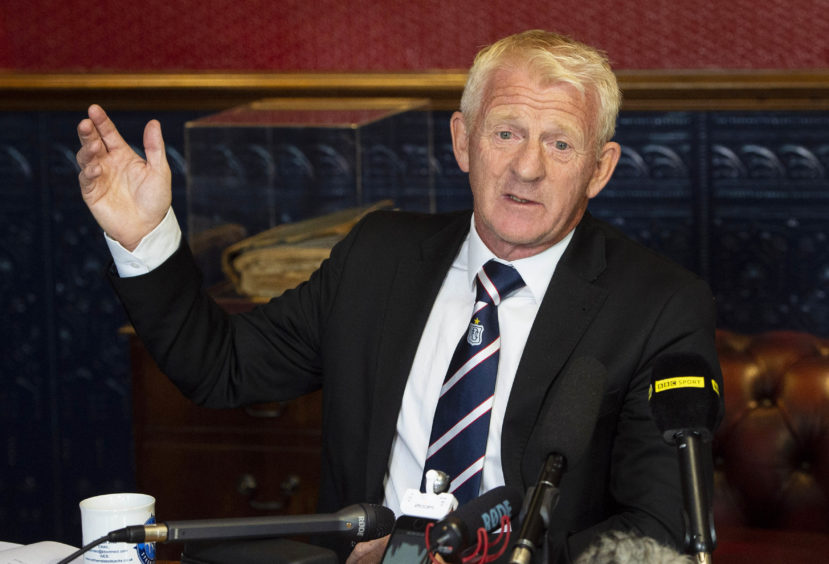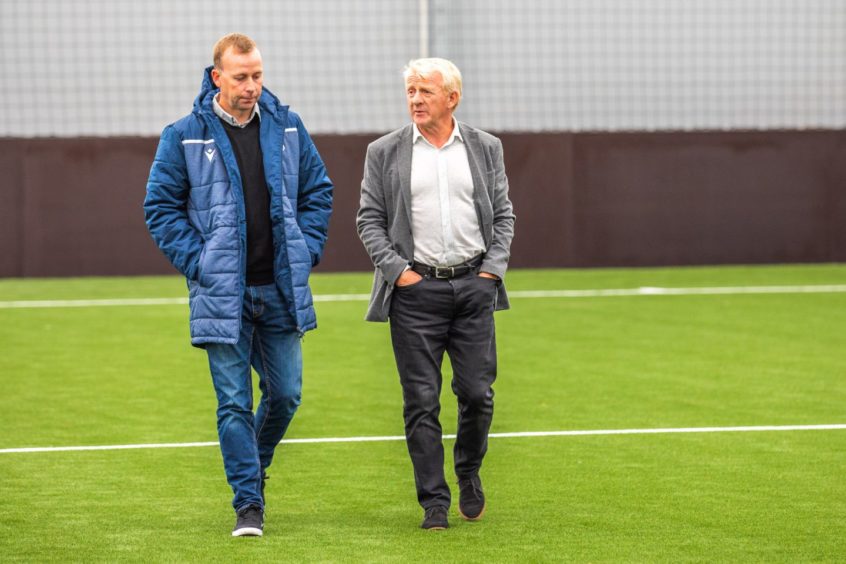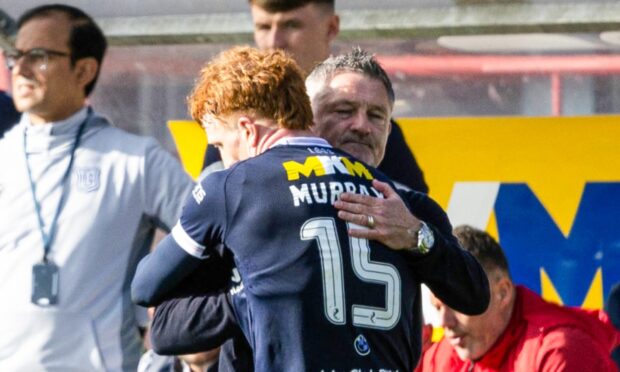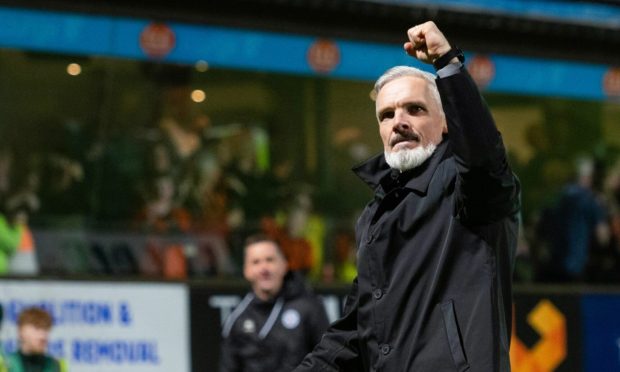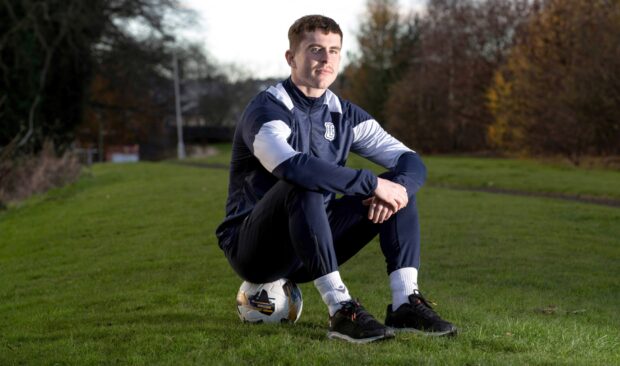Gordon Strachan has described his work as Dundee’s technical director as a “labour of love”.
But the former Scotland manager believes a pervasive “excuse society” is making it harder to produce technically sound young players.
With youth football up and running again following the Covid-19 shutdown, Strachan delivered a withering assessment of the player development model in Scottish football, bemoaning its wide-open pathways for allowing a “flood of nonentities” to progress.
However, he revealed his work at Dens Park is centred around combatting received forms of Scottish youth coaching wisdom by cultivating players with traits modelled on the world’s best.
Speaking on Graham Spiers’ Press Box podcast, Strachan said: “We have to prepare players. The mantra at Dundee now is: The player.
“How do we make the player better? Not the system, not the ‘back four’. We can do that, but unless you make the player technically good and incredibly fit then whatever system you’ve got’s not going to work because you will make mistakes.
“The first Under-18 game I saw here, the coaches asked me what I thought. I said: ‘What do you think?’
“There were clichés about how it was overrun in midfield, so I went and watched the game… there were 78 unforced errors from our players in that game.
“That means bad decision making, bad control, first touch is poor, not got the ability to beat people when they’re under pressure – so there were all these unforced errors.
“Our job now is to make sure the players can deal with the ball, they have fitness, their decision-making is better.
“The coaches asked me how to make their decision making better, I said: “You make sure that everybody in your team can beat somebody.”
“They looked at me like I was stupid: ‘No that’s only for wingers.’ I said: ‘No, everybody in your team must have the ability to beat someone.’
“If you look at Barcelona, Man City – they will pass the ball, but they’re engaged five or six times while passing. (That’s) where the top players can beat you or shield the ball from you, like David Silva, De Bruyne, Iniesta, Xavi, and that means their decision-making is better.
“Us, in Scotland, we get (the ball) and because we lack the ability and belief in beating players and shielding it, we will play balls first time – 50/50 passes – and we’ll go: ‘Unlucky,’ as coaches.
“No. It’s not unlucky. It’s because you’re scared to be engaged with somebody coming at you. We’ve got to try and give everybody at Dundee the ability to beat people.
“It’s a strange thing because all you hear as coaches when (players are) younger is pass, pass, pass, pass. It should be the other way about… don’t pass, shield, beat people, pass when you’re ready.
“Pass when you’re 90% sure the ball is going to get there.”
In revealing his intention to take a more hands-on role in the development of Dundee’s young players once Covid restrictions are eased, Strachan insisted the major barrier between many young Scottish players and true elite status is cultural.
“Hard work can get you places,” he said. “The problem nowadays is what kids think is hard work is not really hard work.
“Kids want things in a flash. I’ve noticed that on their iPods and iPads, they want to see instant action, a wee bit of this, a wee bit of that. They can’t take a full game in and understand what the (players) of Liverpool and Leeds, what they have to put in to play in that game.
“They’ll probably look at a couple of nutmegs and go: ‘Yes, I can do that.’ Or watch how they celebrate a goal. Or the warm-up. Or they watch what shoes they’re wearing, or whether their socks are over their knee or not.
“But they actually don’t watch the game as such, and what it takes to be on that pitch if you’re a Liverpool or Leeds player – the sacrifices you’ve got to make to be there. That’s the problem sometimes.
“But it’s a labour of love and I’m absolutely loving it.”
Despite his enjoyment of the task at hand, Strachan expounded further on what he believes is stifling young players’ progression in Scotland.
And he fingered the lack of immediate challenges they face in progressing through the national youth blueprint as a big issue.
“Football has got a problem. There’s a computer thing, but there’s a thing above that, I think – we’ve got an excuse society,” said Strachan.
“We’ve got an excuse for bad behaviour, lack of work, lack of effort. Everybody seems to have an excuse for their bad behaviour now, or their lack of commitment.
“In football, we’ve got to say this word to them which they very really hear and it’s ‘no’.
“When they hear no they have to go home to speak to their mums and dads or look in the dictionary to see what does that mean. Because they’re so used to people mollycoddling them
“In football we’ve got no time to wait for people and mollycoddle them. We will help you, but you have to be told what is right and what is wrong.
“The top teams know what right and wrong is. They know what 100% is – working, commitment – and they know what it is to be a good teammate.
“That’s what we’ve got to instill in young players when they come along. And it’s not just me. I was with a top club yesterday – a real top club – speaking to academy lads and it’s the same thing.
“Every academy has a problem. There’s no doubt about it.
“I was talking to one of the biggest clubs in the world where they can spend fortunes on kids – I mean fortunes. They can put heir mums and dads in new houses, you name it, they can do it.
“I said what’s your problem because you seem to keep buying players as well.
“They’ve got everything (at the academy) but what they do not have is a character. We need to buy the characters from elsewhere in the world.
“If you look at the Champions League – and maybe it’s a generalisation – the real characters (are from) South America, Africa… places like that, where kids don’t see pitches, football boots, their mum and dads don’t take them anywhere, so they’ve had to fight their way through.
“We should be having less pathways. Because this pathway, it’s like a flood of nonentities go through the pathways and there are no barriers to it.”

